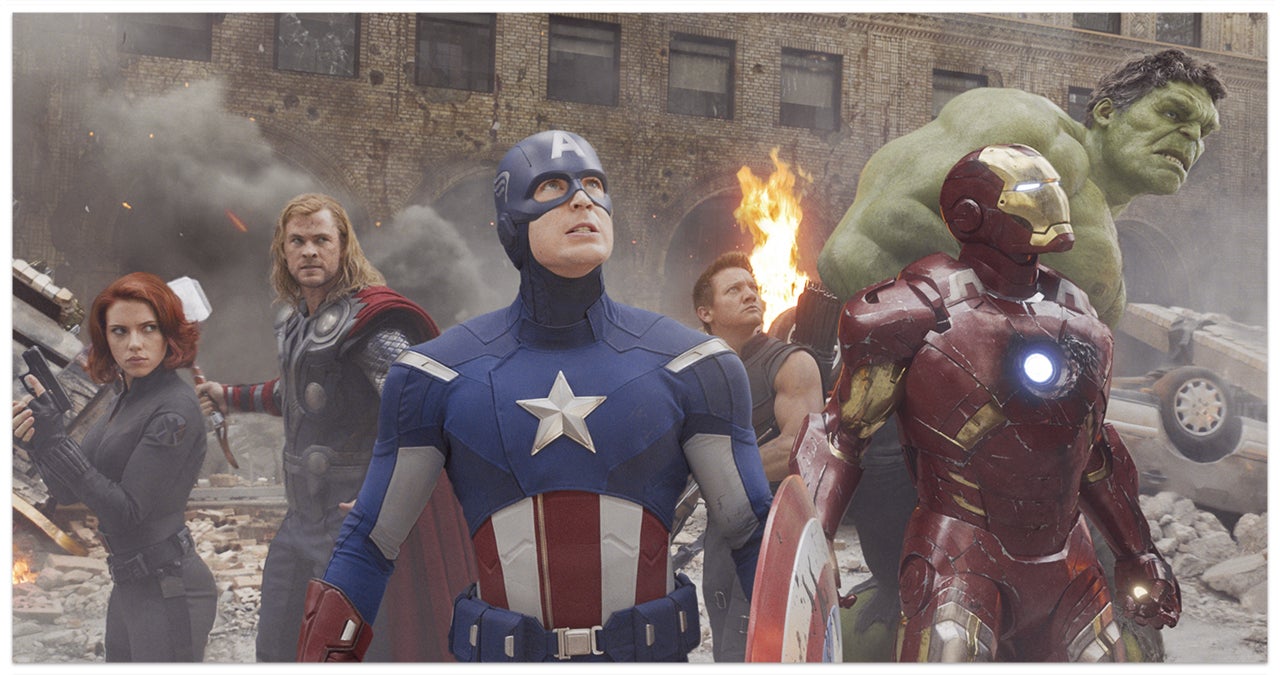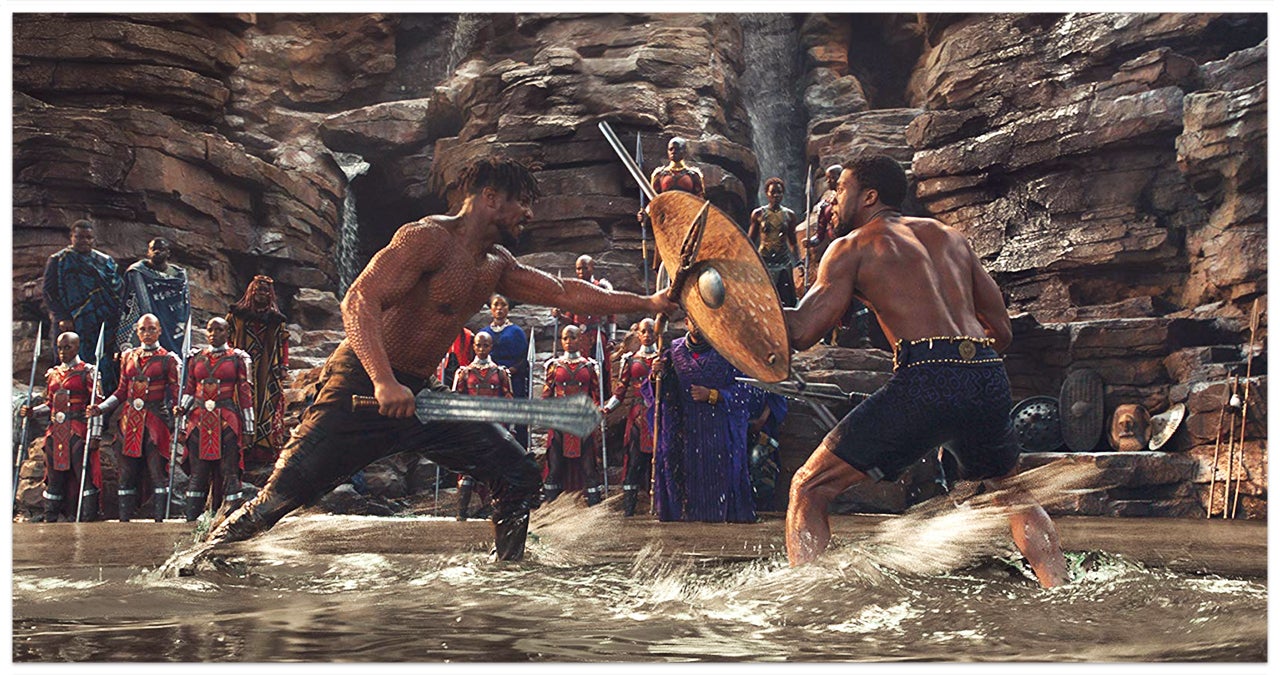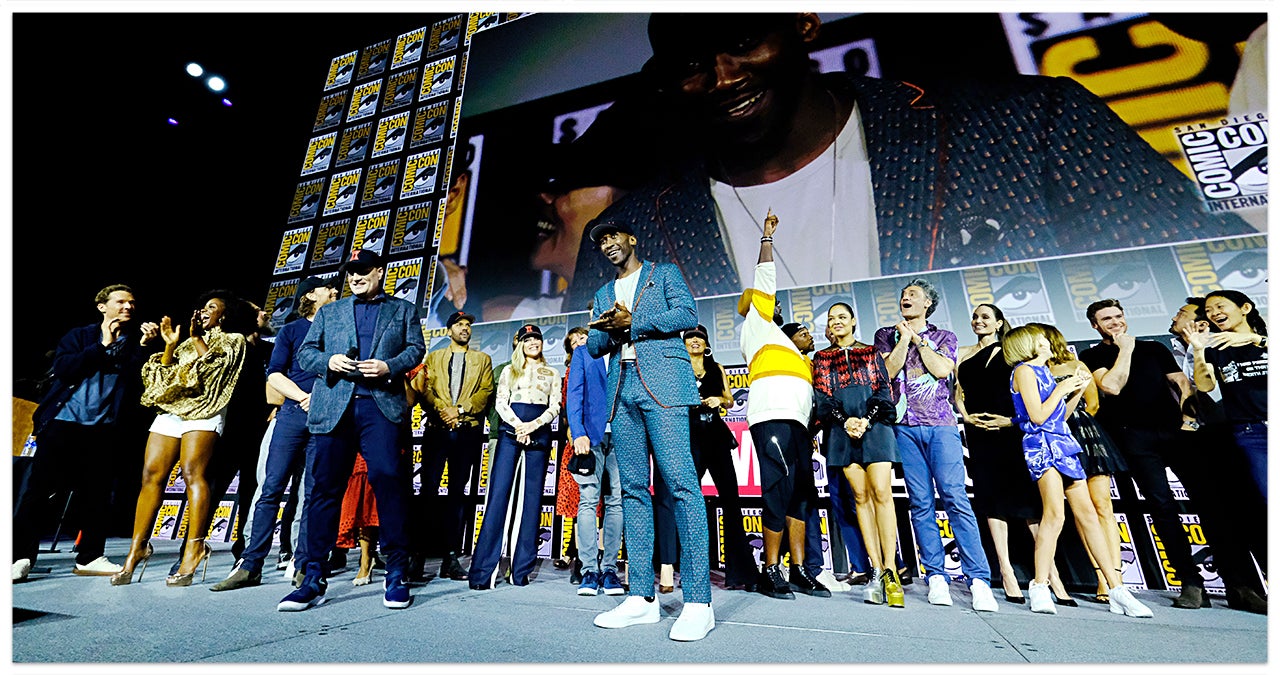How the MCU came to dominate the box office, Oscars and Martin Scorsese's op-eds.
The year 2010 was a turning point for Hollywood. Blockbuster was in the early days of shuttering its doors as the DVD rental company, Netflix, launched its nascent streaming service, signaling what could either be the beginning of the end -- or the start of something new. (The same year, two films made $1 billion for the first time.) What would the movie industry look like a decade from then? The future, it turns out, was Marvel.
Marvel Studios had released two films by the turn of the decade -- 2008's Iron Man and The Incredible Hulk -- but 2010's Iron Man 2 saw Kevin Feige begin to execute a singular vision of linking together the movies into one shared universe, with characters moving between franchises and stories weaving into an ongoing narrative.
"The notion of having an MCU -- an interconnected cinematic universe -- started 10 to 12 years ago as we were working on Iron Man and realizing what our then-infant studio would be able to do that other studios wouldn't," Feige explained to ET. "Which is to combine all the characters we had the rights to. Because we had all the characters -- except the famous ones that anybody knew at the time!"
Now 23 films in, the Marvel Cinematic Universe has become the biggest franchise in the world, earning upward of $22 billion at the box office and forever changing Hollywood as we know it.
The MCU: Often Imitated, Never Duplicated

Marvel did not invent the shared universe -- The Wolf Man, Frankenstein and Dracula were popping up in each other's movies as early as the 1930s -- but the studio did revolutionize the idea with a straightforward enough plan: Introducing superheroes like Iron Man and Thor in their respective origin stories before joining them together for an all-hands-on-deck event film: The Avengers.
"Even in the years leading up to [The Avengers] and announcing it, I was like, 'Can you believe we're doing this?!'" Feige remembered. "And people were like, 'We don't care, and we don't know what you're talking about.'"
That movie's post-credits scene -- another concept Marvel didn't originate but did make de rigueur -- teased a purple space baddie named Thanos, whose storyline propelled The Infinity Saga, as it's known, to its culmination in 2018's Avengers: Infinity War and 2019's Endgame. Saying that people care now is the understatement of the decade.
Other studios attempted to cobble together a cinematic universe of their own: Universal attempted to launch the Dark Universe but scrapped their plans after The Mummy; Legendary has its MonsterVerse, with Godzilla and King Kong; Warner Bros. wanted a universe for Justice League, but has since had to course-correct; and Sony's difficulties building a Spider-verse around The Amazing Spider-Man led to an unprecedented deal with Marvel and Tom Holland's rebooted take on Spidey within the MCU.
Breaking the Glass Ceiling of Superhero Movies

Superhero movies have been around as long as Westerns and musicals, but Christopher Nolan's The Dark Knight Trilogy -- and the posthumous Oscar that Heath Ledger won for his portrayal of Joker -- signposted a move toward recognizing the genre as more than just spandex-clad escapism. And still, it took 2018's Black Panther to break the glass ceiling of superhero films, becoming the first of its kind to be nominated for Best Picture at the Academy Awards.
At the time, Feige told ET, "Black Panther does feel like a whole other level -- not just in the box office success, but in what it means to people around the world. It's humbling, and it feels very special and it feels very important." Black Panther was nominated for eight Oscars and won three, ushering in an era when later films like Avengers: Endgame and DC's Joker have a precedent for Best Picture-dom.
The New Biggest Movie of All Time

Box office success is measured a little differently when it comes to Marvel. They're all successful, but the past year alone saw Captain Marvel and Endgame blow past $1 billion at the global box office (the studio's seventh and eighth film to do so), while Spider-Man: Far From Home became Sony's highest-grossing film ever.
None of those milestones hold a candle to the records Endgame went on to break, however, dethroning Avatar as the highest-grossing film of all time.
Moreover, those recent, history-making successes afforded Marvel a chance to further push its strides toward increased diversity and inclusion. "It was a long time coming," Feige said of ensuring films like Black Panther and Captain Marvel aren't just one-offs. "They're the beginning of all of our movies both in front of and behind the camera, representing the world in which they are made and representing the people who are sitting in that theater all over the world."
Martin Scorsese vs. The MCU

You don't become the biggest franchise in the world without inspiring a few detractors along the way. The latest and likely greatest was Martin Scorsese, who started by decreeing that Marvel's movies are "not cinema," before pivoting to the position that Marvel's movies are swallowing Hollywood.
"Cinema now is changing," Scorsese told ET. "We have so many venues, there are so many ways to make films. So it's an event and it's great to go to an event like an amusement park, but don't crowd out Greta Gerwig and don't crowd out Paul Thomas Anderson and Noah Baumbach and those people -- just don't -- in terms of theaters."
"I think that's not true. I think it's unfortunate," Feige countered, via The Hollywood Reporter. "Myself and everyone who works on these movies loves cinema, loves movies, loves going to the movies, loves to watch a communal experience in a movie theater full of people."
If there is a future in theaters for anything besides blockbusters remains to be seen as Hollywood as we know it continues to change, perhaps now more than ever. But what is certain -- at least through 2023, when their slate of Phase 4 films comes to an end -- is Marvel and their barely tapped bench of heroes.
RELATED CONTENT: